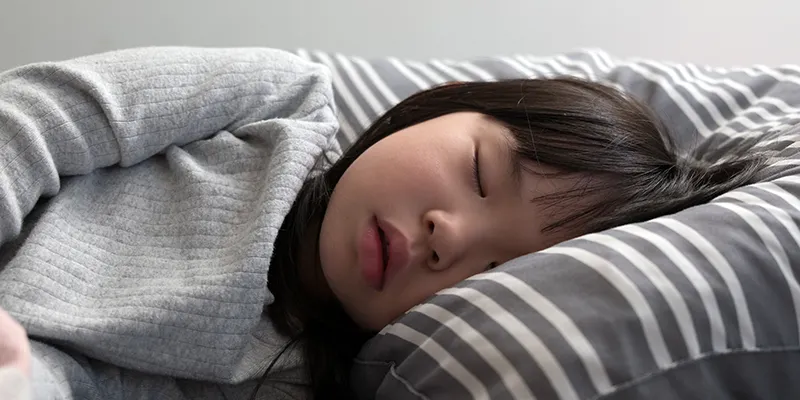How to Help Kids Form Healthy Sleep Habits
It’s important to help kids form healthy sleep habits when they are young by setting bedtimes and sleep routines.
- 2 min read
- health & wellness

Sleep is essential to long-term health; however, many kids and adults don’t get enough of it. As parents, it’s important to help your children form good sleep routines when they’re young, so these patterns stick with them into adulthood. One of the best ways to facilitate this is through sleep hygiene, which means establishing habits that promote a good night’s sleep.
How co-parents can work together to promote sleep hygiene
You and your co-parent can help your kids get better sleep by agreeing upon consistent bedtime rules and routines for each home. Here are some common guidelines that co-parents can put in place to help their children form healthy sleep habits, depending on their age:
- For toddlers and small children, consistency is more important than ever, especially if your kids alternate households. Establishing a bedtime routine, keeping the same bed at each house, providing comfort, and avoiding too much food or drink before bed are all great ways to help your children sleep better and form healthy sleep habits. For toddlers, playing music or reading a bedtime story might also help them feel at ease and fall asleep more soundly.
- For gradeschoolers, you need to set a clear bedtime and wake-up time at both households. Try to create a soothing environment or facilitate calming activities before bed. You and your co-parent can encourage your child to read a book, draw, or simply sit and chat with you before they go to sleep. Make sure your kids avoid blue light from televisions, computer screens, or other electronics before bed and keep screens out of your child’s room at night.
- For older children and teens, consistent sleep routines can be a little harder to enforce, but limits should still be in place. Older children and teens should still have a time that they must go to bed by at both households. You and your co-parent should encourage your kids to avoid caffeine in the late afternoon and evening, so they are not kept awake. It’s also beneficial to encourage your child or teen to stop using their phone and/or computer at least one hour before they plan to go to sleep.
How much sleep should children and teens get?
A good night’s rest is important no matter what age you are, but the amount of sleep children need is dependent upon age. The American Academy of Pediatrics recommends the following:
- 4-12 months old: 12-16 hours of sleep (including naps)
- 1-2 years old: 11-14 hours of sleep (including naps)
- 3-5 years old: 10-13 hours of sleep (including naps)
- 6-12 years old: 9-12 hours of sleep
- 13-18 years old: 8-10 hours of sleep
Healthy sleep habits are important for kids
Studies show that children who regularly get enough sleep have improved attention, behavior, learning, memory, and overall mental and physical health. Additionally, not getting enough sleep can lead to high blood pressure, obesity, depression, and other health problems.
Agreeing upon consistent sleep routines with your co-parent can help your child form healthy sleep habits, ultimately having a positive impact on their overall health and wellness. If you and your co-parent need a shared place to document rules and guidelines surrounding sleep routines, TalkingParents offers the Info Library feature, which gives you the perfect spot to outline important information like this.